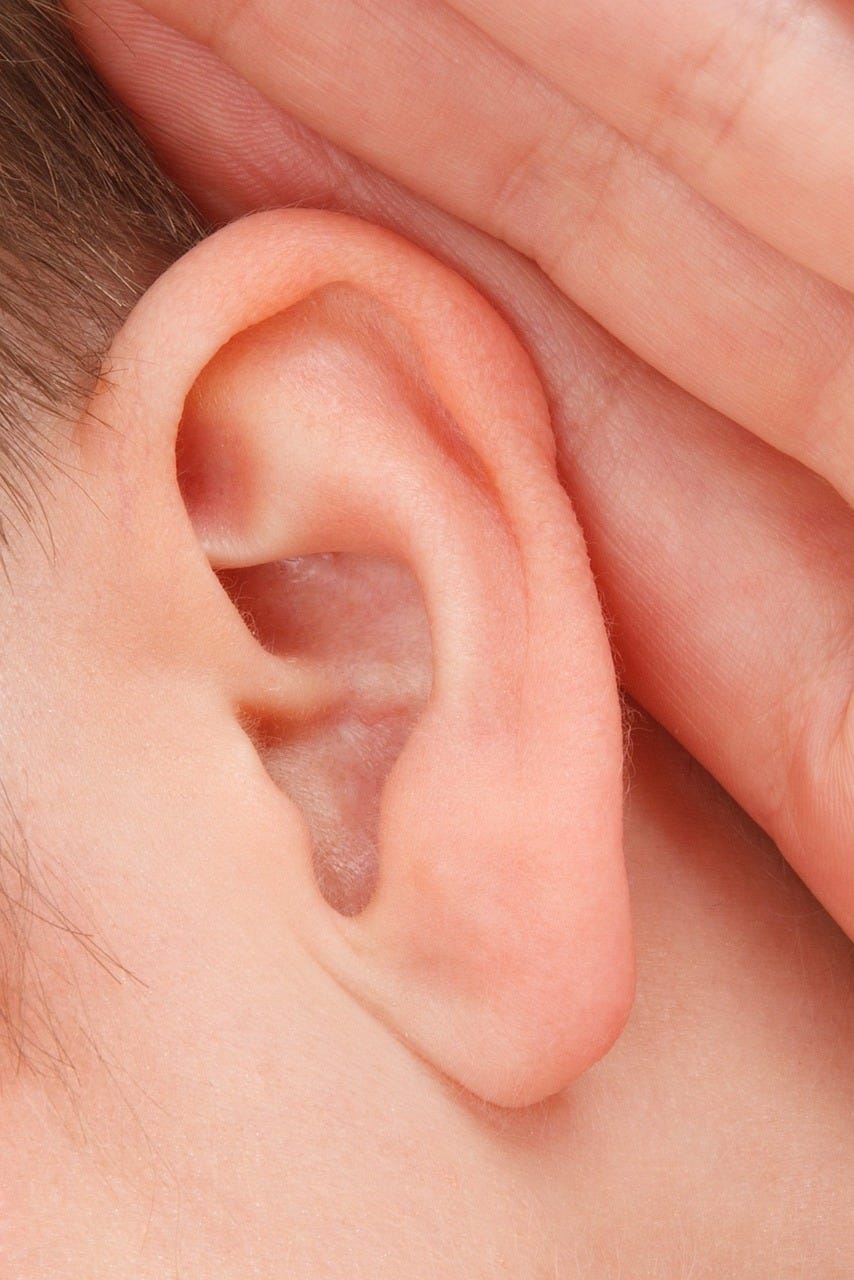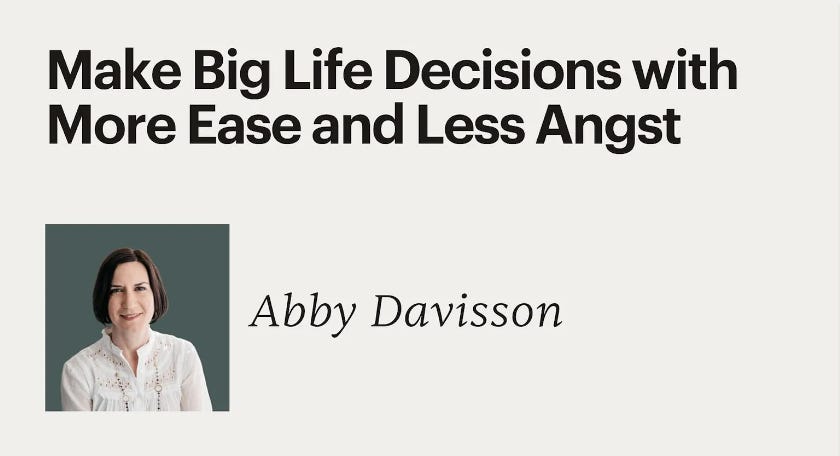Why does listening matter so much?
A new study yet again demonstrated the power of listening. Listening, it turns out, not only connects people and helps them think more deeply about their own views, it also makes thinking less extreme. These findings are similar to a 2016 study that showed how a 10-minute conversation that involved canvassers simply listening to people’s views about transphobia significantly reduced transphobia with effects persisting for the 3-month duration of the follow-up.
What I think is most notable about this recent study is how they defined high quality listening. People have all sorts of notions about what good listening looks like. For instance, we are often told that reflective listening—that is, paraphrasing what someone has said—is the secret ingredient. A more recent skill called looping (which is basically reflective listening plus asking to make sure you’ve understood until you get confirmation) has also been identified as listening gold.
But there’s something more to good listening than our communication behaviors. It goes deeper than what we say in response to someone sharing with us. These new research findings offer a window into what that something is. Even cooler? Their definition of high quality listening maps onto what the great humanist psychologist, Carl Rogers, illuminated many decades ago.
Listening is hard… even for Carl Rogers

Let’s start with a basic truth: we all struggle to be good listeners—even Carl Rogers. Carl Rogers wrote:
Our first reaction to most of the statements which we hear from other people is an immediate evaluation or judgement, rather than an understanding of it. When someone expresses some feeling or attitude or belief, our tendency is, almost immediately, to feel “That’s right”; or “That’s stupid”; “That’s abnormal”; “That’s unreasonable"; “That’s incorrect”; “That’s not nice.” Very rarely do we permit ourselves to understand precisely what the meaning of his statement is to him.
Rogers explained that for most of us, listening deeply in the way that most people want to be heard can be threatening. Opening ourselves up to really and truly understand someone else means that their views might change our own. He writes:
If I let myself really understand another person, I might be changed by that understanding. And we all fear change. So as I say, it is not as easy thing to permit oneself to understand an individual, to enter thoroughly and completely and empathically into his frame of reference.”
Listening isn’t just hard, it’s scary.
Yet Carl Rogers thought that listening was valuable, both for his patients and for him:
I learn from these experiences [of understanding others] in ways that change me, that makes me a different and, I think, a more responsible person. Even more important, perhaps, is the fact that my understanding of these individuals permits them to change.
Let’s pause on this for a moment…
Listening helps the speaker to feel connected and accepted to their listener. It helps them to gain insight into themselves and, from this position, they experience a freedom to change and grow in new directions. And the benefits of high quality listening go in both directions—to both the speaker and the listener.
But what does this superpower actually look like in action?
High Quality Listening
Guy Itchakov is an Israeli researcher whose work focuses on this collection of listening habits that he collectively defines as “high quality listening.” His research has shown that high quality listening reduces prejudice, helps us heal after social rejection, and helps us clarify our own thinking. And then there’s this recent study I mentioned earlier demonstrating that high quality listening helps us not only connect and clarify our thinking, but also reduces extremity of attitudes.
Itchakov and his colleagues define high quality listening as “a multifaceted process that includes paying attention, comprehending the other’s points, and holding a positive intention toward the speaker.”
That’s:
Paying attention
Comprehending the other person’s points
Holding positive intention
I love this definition because it gets to what we are doing behaviorally and cognitively and emotionally as we listen. It also encompasses the unconditional positive regard that Carl Rogers is so famous for having described.
Let’s dive a little deeper into the component parts.
Paying Attention
Paying attention to what someone else is saying means temporarily putting your own agenda to the side. Attention, after all, is a zero-sum game. So, if you’re intent on sharing your own thoughts or debating the point someone is sharing, then you aren’t fully attending to them—you’re wrapped up in your own thinking or feeling.
So the tip here is to practice being deliberate in paying attention; put down your phone; look into your speaker’s eyes. Because high quality listening involves giving a speaker your full attention.
Comprehending
When it comes to comprehending the other person’s point, we all believe we understand, in the moment—even when we don’t. I hear this all the time in the couples’ therapy room (and in my brain). “I understood exactly what you said!”; “I already know what you mean!”
Recently, I was reading a book about misunderstanding that highlighted something interesting: we easily acknowledge past misunderstanding. But we struggle to notice misunderstanding as it’s happening.
There’s a grammatical consequence of this. It seems fine to say “I misunderstood you” (past tense) but strange to say “I misunderstand you” (present tense). But both are technically grammatically correct. It’s just that we struggle to perceive misunderstanding in the present. That is a wired-in feature of our mind. Just imagine how unsettling it would be to walk around recognizing how little we can understand about what other people are thinking, what motivates them, what’s going on in their internal worlds, and so on.
Compare that to the clarity we have in how often we are misunderstood. We are acutely familiar with the all-too-common experience of being misunderstood; yet we typically feel that we understand others pretty well.
Something about that math doesn’t add up, though. Most people are confident they understand others well, yet most people feel regularly misunderstood. That means (and is born out by studies of overconfidence in understanding) that there’s a high likelihood that you misunderstand others more than you think you do.
Thus the tip here is to grow some skepticism of your own overconfidence in understanding others. Be humble about what you understand and use that humility to motivate learning more about the speaker.
Holding Positive Intention
I don’t think any of the components of high-quality listening are particularly easy, but this one may be the most challenging of all. Take any couple who has been struggling for some time and you’ll discover that the positive regard they hold for each other has eroded. Take any ingroup and ask what they think of its own members relative to members of an outgroup, and you’ll find positivity for outgroup folks to be less. We struggle to hold positive intentions for people, particularly when we are in conflict or when we don’t identify them as being “like” us. our default tendency to drop into ingroup/outgroup thinking: regardless of what specific group we are a part of, we are all a part of the same human race. We all share the planet we live on. And though our morals may differ, most of us tend to have some overlap in the things that we care about (you know, like wanting to be listened to).
Holding positive intention looks like active curiosity, valuing, respecting, caring, and wanting to understand the point of view that the speaker holds. We can offer that even if we don’t much like a message we are hearing.

Here’s how to ease your way into offering others the benefit of the doubt: remember that you don’t need to agree with a person or like what they are saying to see them as being a person worthy of dignity and respect. All of us, regardless of what people think of you or whether they hold the same worldview or morals, deserve to be given dignity and respect.
To summarize…
We all struggle to listen, yet listening is something that is powerful both for the people we are listening to, and for ourselves. It connects us to one another, helps us understand ourselves and each other better, and makes unhelpful extreme attitudes less extreme.
High quality listening has three components, none of which are easy, but all of which can be practices:
Paying attention
Striving to comprehend better
Holding positive intention
May we all aspire to be like Carl Rogers and offer one another the gift of high quality listening.
If you find the research on listening to be of interest, I highly recommend checking out this recent Hidden Brain episode featuring Guy Itchakov, the lead researcher on the study I cited at the front end of this newsletter.
Before we I sign off, I wanted to share about a very cool new course being taught my brilliant colleague (with a newsletter of her own)
. It’s a 4-week, live course called Make Big Life Decisions with More Ease and Less Angst and it starts April 26th.This course is for you if you're seeking evidence-based wisdom, structure, and support as you consider a choice that feels scary, daunting, and exciting (investing in a relationship—or leaving one, for example). It covers topics like clarifying values and priorities; communicating effectively with important stakeholders; and avoiding the stumbling blocks that lead to regret through short lessons. There will be practical reflection exercises, personal stories, and interactive conversations and you'll walk away with a clear action plan customized to your specific situation and constraints, and you'll feel more empowered and confident as a result.
All Relational Riffs readers can enter code RELATIONAL100 for $100 off the course price. And Abby is offering one free spot in her course to a Relational Riffs subscriber. To be entered into a drawing for the spot (an $800 value), simply apply using this link by 4/19 and mention "Relational Riffs" in the question that asks "How did you hear about this course?" The winner will be notified by 4/22.
If your interest is piqued, check out Abby’s free 30-minute webinar on "How to Make Big Life Decisions You Won’t Regret" on Friday, April 12 at 9 am PT. Those who register in advance (via this link) will receive the recording and a resource on minimizing regret. Find more information here, or you can reach out directly to abby@abbydavisson.com to learn more.



All of this applies to how we can be better listeners as parents when our children are expressing themselves, but I especially gravitated toward the positive intention piece. This could go a long way in parents and kids trying to listen and understand each other! Thanks for writing such a great piece!
Also, the positive intention component made me think of your previous piece, about the Black woman who was able to see the humanity in a KKK leader. She must have had a really admirable ability to see and respect the humanity of everyone.